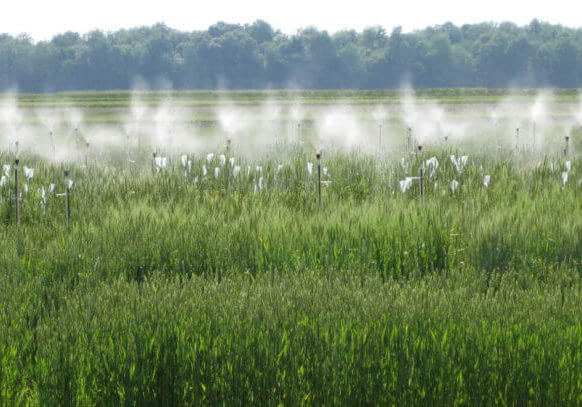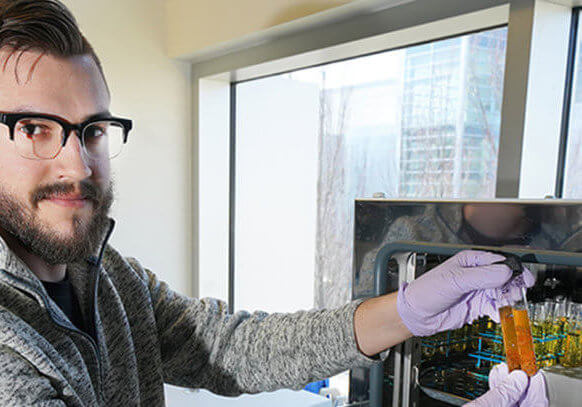S
tephen Schwartz experienced a bizarre sense of deja vu in his final weeks at Purdue, finding them oddly similar to his high school years: finishing his degree online while at the top of his class. However, Schwartz admits his satisfaction at being selected for the 2020 G.A. Ross Award as the top male student in Purdue’s graduating class of roughly 8,000 students outshines his accomplishments in his homeschool class of one.
Winners of the G.A. Ross Award are selected for their commitment to scholarship, leadership and service, as well as grade point average and character. The award has a strong legacy within the College of Agriculture, which has produced seven recipients since 2003.
Schwartz is a third-generation Purdue graduate, a tradition that started with his grandmother.
“Not only is the Purdue College of Agriculture the best in my opinion, it’s home,” said Schwartz. “My father loves Purdue. He has been an agronomist for over 30 years and is now the director of agronomy for Beck’s Hybrids. Whenever he hosts meetings or trainings for his agronomists, he always tries to find professors from Purdue to help educate and improve his team.”
Winners of the G.A. Ross Award are selected for their commitment to scholarship, leadership and service, as well as grade point average and character. The award has a strong legacy within the College of Agriculture, which has produced seven recipients since 2003.
Schwartz is a third-generation Purdue graduate, a tradition that started with his grandmother.
“Not only is the Purdue College of Agriculture the best in my opinion, it’s home,” said Schwartz. “My father loves Purdue. He has been an agronomist for over 30 years and is now the director of agronomy for Beck’s Hybrids. Whenever he hosts meetings or trainings for his agronomists, he always tries to find professors from Purdue to help educate and improve his team.”
“Purdue expanded my view of what agriculture is and can be,” said Schwartz. “My background is in seeds, but now I’ve worked with livestock and done forages. I’ve traveled to Costa Rica to look at sustainability and how to do environmental stewardship in a way that makes financial sense. I’ve seen so many areas where agriculture is on display. That’s the beauty of the College of Agriculture.”
Schwartz’s degree is in agronomy’s crop and soil management program, which is not originally the course of study he planned to pursue.
“At first I was going to focus on genetics, but I realized that I enjoy being around people. I didn’t want to be stuck in a lab for the rest of my career. Agronomy really gives the opportunity to experience the science and go deep into the learning like plant physiology, in which I’m going to get my master’s at the University of Illinois.”
Schwartz also studied agribusiness management, which he thinks will open a variety of career pathways.
“Eventually, everything comes down to business,” explained Schwartz. “You have to help your company make money and understand how it operates. My dad and mom are both in science, so the opportunities to develop my economics and business sense provided a new, valuable approach.”
Schwartz said it was his parents’ foresight that made his transition from homeschool to Purdue almost seamless. They advised Schwartz to take all his senior high school classes online at Ivy Tech so he could transfer the credits he earned to Purdue. With calculus, chemistry, literature and economics behind him, Schwartz got off to a quick start.
“I jumped into Agronomy 255, Soil Science, the first semester of my freshman year. Then, second semester freshman year, I was a teaching assistant for that class.”
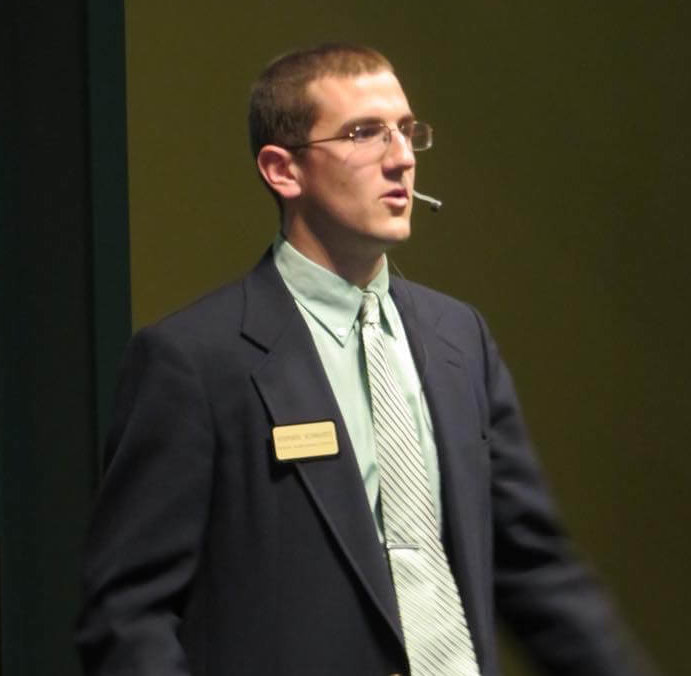

“Eventually, everything comes down to business,” explained Schwartz. “You have to help your company make money and understand how it operates. My dad and mom are both in science, so the opportunities to develop my economics and business sense provided a new, valuable approach.”
Schwartz said it was his parents’ foresight that made his transition from homeschool to Purdue almost seamless. They advised Schwartz to take all his senior high school classes online at Ivy Tech so he could transfer the credits he earned to Purdue. With calculus, chemistry, literature and economics behind him, Schwartz got off to a quick start.
“I jumped into Agronomy 255, Soil Science, the first semester of my freshman year. Then, second semester freshman year, I was a teaching assistant for that class.”
Many of his Purdue mentors joined Schwartz virtually as more than 50 friends, family members and colleagues surprised Schwartz on a video conference call during which he was informed about this honor.
“I must admit, I was crying pretty heavily on the call,” said Schwartz. “It was a complete surprise and honor,” said Schwartz, who didn’t know he had been nominated by Andrew Oppy, associate director of Academic Advising and Career Services in Agricultural Economics.
“Stephen has been an amazing student to work with. His strong work ethic and humble nature is unlike anyone else I’ve known,” said Oppy.
“I can attest,” said Marcos Fernandez, former associate dean of academic programs and professor of animal sciences and a role model to Schwartz, “that Stephen’s many successes and accomplishments are the result of his genuine care, dedication, and advocacy for his fellow students, the College of Agriculture and Purdue University. Stephen is an intelligent, talented, and upstanding individual with a heart of gold, a leader amongst leaders.”
Schwartz served on the Agricultural Student Council, Purdue Mortar Board, and three years as president chairman of the Purdue Honor Pledge Task Force. Schwartz also mentors students through the World Food Prize, a partnership that started when Schwartz became a Wallace-Carver Fellow as a junior in high school.
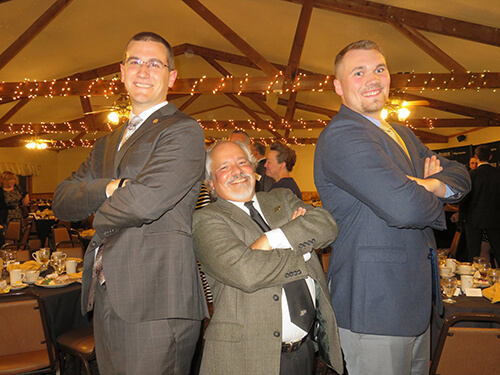
“I can attest,” said Marcos Fernandez, former associate dean of academic programs and professor of animal sciences and a role model to Schwartz, “that Stephen’s many successes and accomplishments are the result of his genuine care, dedication, and advocacy for his fellow students, the College of Agriculture and Purdue University. Stephen is an intelligent, talented, and upstanding individual with a heart of gold, a leader amongst leaders.”
Schwartz served on the Agricultural Student Council, Purdue Mortar Board, and three years as president chairman of the Purdue Honor Pledge Task Force. Schwartz also mentors students through the World Food Prize, a partnership that started when Schwartz became a Wallace-Carver Fellow as a junior in high school.

“Coming from home school, I was in a class of one. I never had the opportunity to work in teams or collaborate on group projects,” said Schwartz. “Through my education at Purdue, I’ve learned how much I love collaboration.
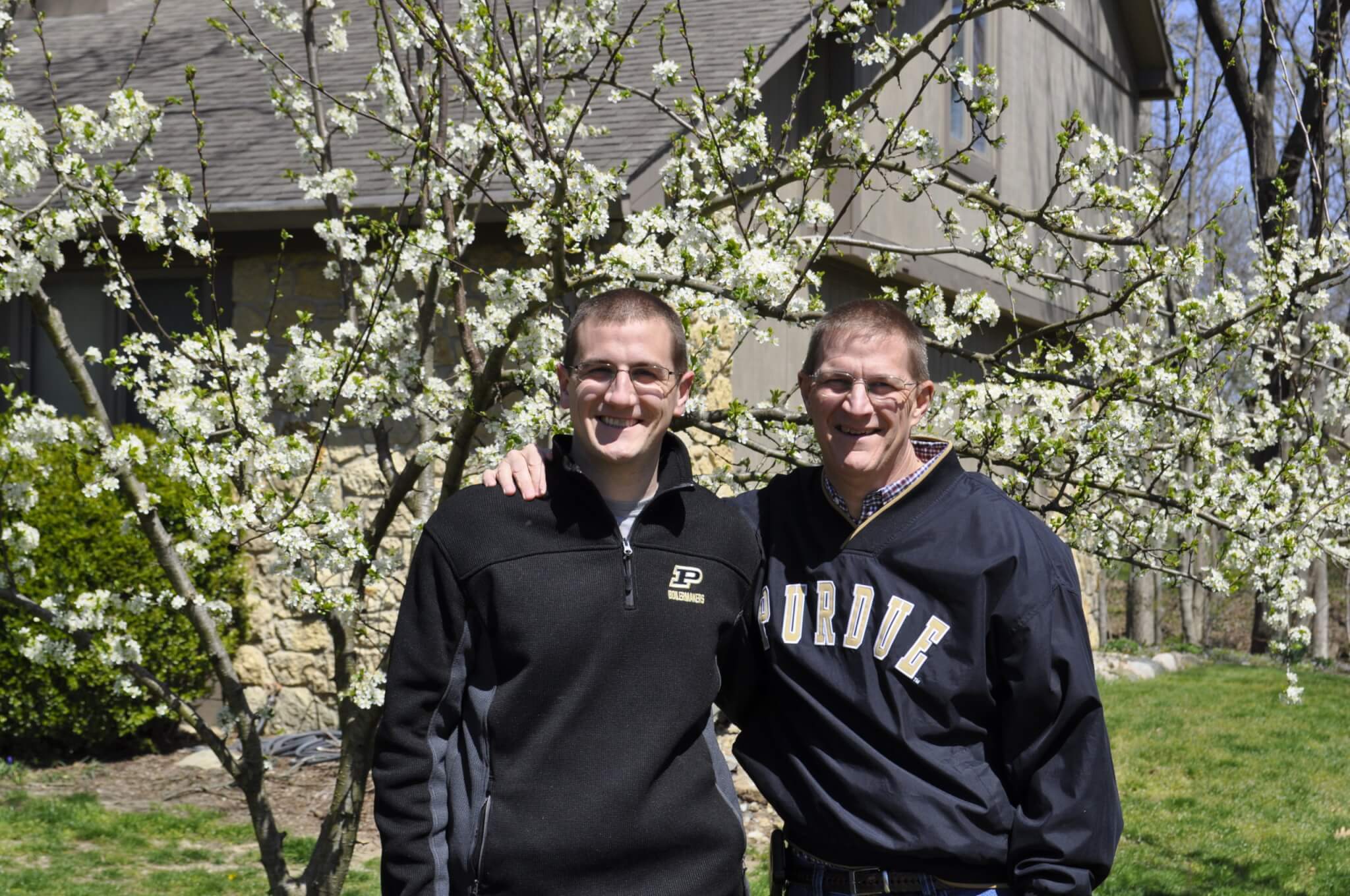
Purdue’s Herb Ohm sees decades of work come to fruition
Herb Ohm had no intention of retiring in 2014. He still had work to do and, by his own calculations, he’d be in the field and lab for at least another three years when he would turn 70.
After earning his doctorate under famed Purdue wheat breeder and agronomist Fred Patterson, Ohm joined the Purdue faculty in 1971, eventually becoming the leader of the wheat-breeding program when Patterson retired in 1986. One of Ohm’s specialties was crossing wheat with wild and exotic species that contained genes long left behind by those who had cultivated modern wheat varieties. The hope was that those exotic species have natural genetic resistance to pests and diseases.
Read Full Story >>>Conquering the Trail
Purdue Forestry and Natural Resources (FNR) alumnae Rebekah Lumkes and Baleigh Haynes joined an elite group of individuals, completing a 2,192 mile thru-hike of the Appalachian Trail. For one, it was the culmination of a college pipedream. For the other, it offered a much-needed life reset. Here is their story.
Read Full Story >>>Graduate researcher makes the most of fungi
Ethan Hillman likens his arrival at Purdue to speed dating. Hillman, who chose the Purdue Interdisciplinary Life Science (PULSe) program for graduate study, rotated through multiple labs, looking to find the right match for the next five years.
Read Full Story >>>Purdue’s Herb Ohm sees decades of work come to fruition
Herb Ohm had no intention of retiring in 2014. He still had work to do and, by his own calculations, he’d be in the field and lab for at least another three years when he would turn 70.
After earning his doctorate under famed Purdue wheat breeder and agronomist Fred Patterson, Ohm joined the Purdue faculty in 1971, eventually becoming the leader of the wheat-breeding program when Patterson retired in 1986. One of Ohm’s specialties was crossing wheat with wild and exotic species that contained genes long left behind by those who had cultivated modern wheat varieties. The hope was that those exotic species have natural genetic resistance to pests and diseases.
Read Full Story >>>Conquering the Trail
Purdue Forestry and Natural Resources (FNR) alumnae Rebekah Lumkes and Baleigh Haynes joined an elite group of individuals, completing a 2,192 mile thru-hike of the Appalachian Trail. For one, it was the culmination of a college pipedream. For the other, it offered a much-needed life reset. Here is their story.
Read Full Story >>>Graduate researcher makes the most of fungi
Ethan Hillman likens his arrival at Purdue to speed dating. Hillman, who chose the Purdue Interdisciplinary Life Science (PULSe) program for graduate study, rotated through multiple labs, looking to find the right match for the next five years.
Read Full Story >>>